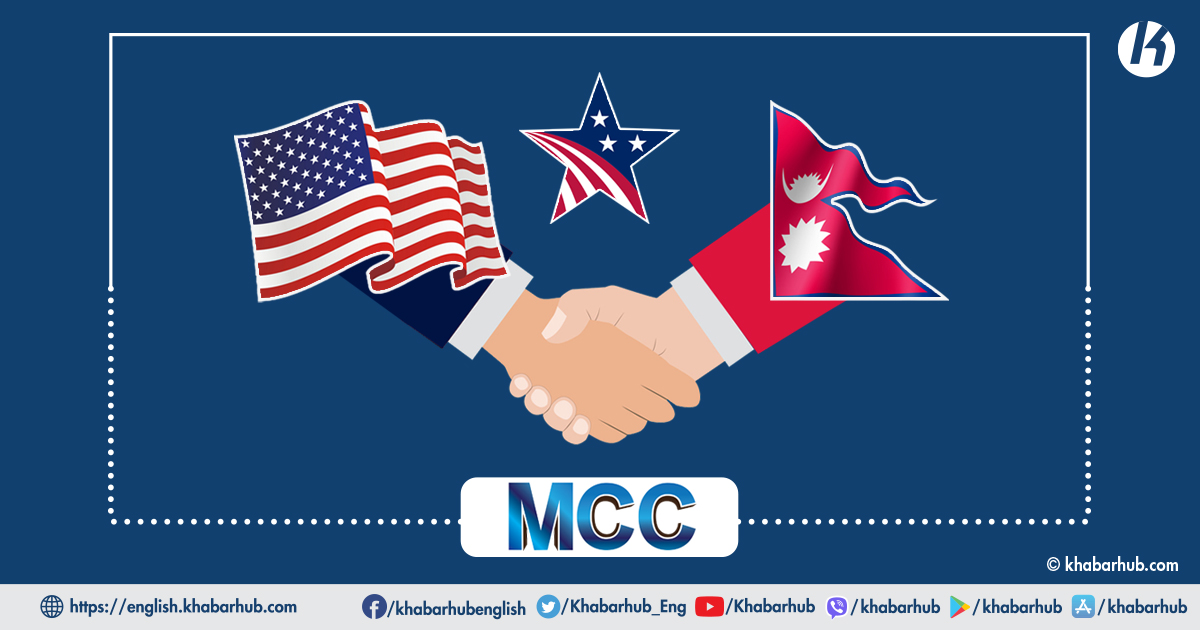KATHMANDU: The long-anticipated Millennium Challenge Corporation (MCC) Compact is to begin implementation in Nepal today (August 30), signifying the official commencement of the program.
Authorities confirmed the Entry into Force (EIF) date for the Compact, which was determined during a board meeting of the Millennium Challenge Account Nepal (MCA-Nepal) held on August 16.
The timeframe for executing the MCC project, as stipulated in the agreement, spans five years, with the commencement on August 30.
The MCC, a US Government initiative, entered into a $500 million grant agreement with the Government of Nepal in September 2017.
While some tasks related to land acquisition and compensation distribution are yet to be finalized, the MCC Nepal Compact aims to address these issues preemptively once the selected construction companies gain access to the project site, according to sources from MCA-Nepal.
The project encompasses power transmission line and road construction under the MCC Nepal Compact, with a stipulated completion period of five years from the EIF date, starting August 30.
The MCC project, labeled as a national pride endeavor, encompasses various infrastructure developments.
A transmission line spanning the Ratmate-Lapsiphedi-Hetaunda-New Damauli-New Butwal section is a highlight.
This entails constructing transmission sections between Butwal and Damauli, Damauli and Ratmate (Nuwakot), Ratamate and Hetauda, and Ratamate and Lapsiphedi (Kathmandu) from the Indian border, with a 400 KV capacity.
Furthermore, the MCC encompasses a road improvement scheme, targeting a 77-kilometer stretch from Bhaluwang in Dang to Seema Shiv Khola in Banke.
Among the six pre-conditions necessary for EIF implementation, five have been fulfilled, including the agreement to execute the projects, designating MCC as the national pride projects, establishing the Electricity Regulatory Commission for sector oversight, and obtaining approval from the Indian Government for the Butwal-Gorakhpur transmission lines.
Notably, land acquisition remains pending, with a total of 1,471 hectares required for electricity transmission lines and additional plots needed for construction purposes.
Compensation for acquired land has already commenced. The postponement of project implementation has also increased the government’s financial commitment by $67 million, bringing the total liability to $197 million, up from the initial $130 million.
The US Embassy in Kathmandu said it received and acknowledged the interpretative declaration related to the MCC, emphasizing alignment with Nepal’s Constitution over the MCC Nepal Compact’s terms.
This interpretative declaration was endorsed by the Legislature-Parliament on February 22, 2022, along with the MCC Compact itself, following comprehensive discussions addressing concerns raised about the agreement.
Cameron Alford, Vice President of the MCC’s Compact Operations Department, arrived in Kathmandu ahead of the MCC’s Entry into Force (EIF) day on August 30, 2023. This milestone marks the official initiation of the MCC agreement’s implementation in Nepal.









Comment